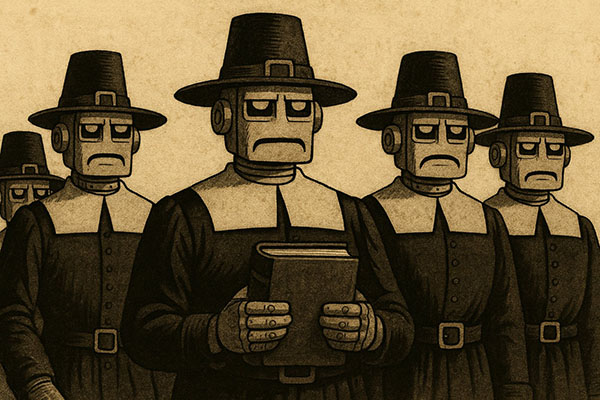 Last week, OpenAI quietly announced that its ChatGPT platform will soon allow users to engage in erotic conversations with AI — but only after verifying their age. This move marks a major policy shift, as erotic content has previously been restricted across most major AI platforms. According to reporting by Ars Technica, the rollout will be limited to verified adults and will include new safeguards and content policies tailored to ensure responsible use of the technology.
Last week, OpenAI quietly announced that its ChatGPT platform will soon allow users to engage in erotic conversations with AI — but only after verifying their age. This move marks a major policy shift, as erotic content has previously been restricted across most major AI platforms. According to reporting by Ars Technica, the rollout will be limited to verified adults and will include new safeguards and content policies tailored to ensure responsible use of the technology.
This change is a big deal — not just for people in the adult content industry, but for the country in general. The global shift from western style democracies towards authoritarianism and BIG BROTHER, especially in the United States, has been a very real thing in recent years. We’ve seen countless examples of spineless companies taking the path of least resistance, at the cost of longtime core values that favor open expression and personal freedoms. To see OpenAI take one step back from the brink is a sign that the ideals of liberal democracy have no yet been entirely abandoned by those at the top.
For too long, our public conversations about the crossroads of erotic content and emerging technologies have been dominated by fear and corporate squeamishness. Most platforms respond to anything even slightly suggestive with blanket bans, algorithmic censorship, or automated account strikes. Adult creators are deplatformed without notice. Users are infantilized by overly broad filters.
OpenAI’s new policy, by contrast, is a welcome step toward restoring nuance to a topic that is deeply human. Erotic expression, including solo exploration via AI, is not a social ill. It’s a fact of adult life. And treating it as something that can be responsibly accessed rather than automatically banned is, frankly, overdue from the leaders of the AI technology revolution.
What OpenAI is doing here is important:
-
It puts consenting adult use back in the hands of consenting adults.
-
It creates space for adults to explore sexuality in ways that are private, safe, and non-exploitative.
-
It opens new frontiers for responsible AI product development — one that doesn’t erase marginalized voices, identities, and fantasies in the name of corporate liability.
And in the process, it models a more mature and democratic approach to speech in the age of AI, at a time when the risk of authoritarian crackdowns on speech are unusually high in historically tolerant place like the United States.
This Isn’t Just About the Adult Industry
While this change clearly benefits creators and users in the adult space, many of whom have highly restricted access to top AI tools, it also sets a new precedent in content governance.
We often talk about “safety” in AI, but what OpenAI is doing here is expanding the definition of safety to include consensual freedom. That’s a big philosophical shift.
-
It signals that on the modern Internet, we can build guardrails without building walls.
-
It pushes back against the idea that the only “safe” AI is a neutered one.
-
It recognizes that adults deserve tools that reflect their full range of expression, not just sanitized versions that please the religious right.
In a day and age where Big Tech often takes the cowardly route by over-moderating to avoid controversy, this move hints at a more courageous middle path.
Age Verification: A Double-Edged Sword
There’s always a catch, though. OpenAI’s policy shift will hinge on age verification, a practice that’s growing rapidly across the adult and “sensitive content” landscape. Is that a good thing or a bad thing? It’s complicated. Let’s start with the bright side.
Age verification may help reduce the amount of erotic content that reaches minors online. It also offers some legal cover for platforms that want to host sex-positive tools, and it had the potential to increase trust and legitimacy with advertisers, banks, and regulators. All this opens the door to better mainstream integrations and broader cultural acceptance
But it’s not all upside.
There are real risks here. Age verification can become a barrier to entry for small creators, especially those in marginalized or privacy-sensitive communities. It can create data collection and privacy exposure issues if platforms don’t implement secure, minimal-storage systems. It can centralize power in the hands of third-party gatekeepers (ID vendors, payment processors, governments, and it may offer a false sense of security; verification alone won’t stop abuse, harassment, or exploitation if the systems around it are poorly designed.
So while age verification might be the political price of access, it should be implemented with care — and with creators, not just lawyers, at the table.
For now though, let’s take the W. OpenAI’s decision to allow erotic chats for verified adults is not a small tweak. It is a welcome shift in philosophical stance, one that treats users like grown-ups, creators like professionals, and AI like a medium worth cultivating rather than sterilizing.
It doesn’t mean there won’t be problems. There will be.
But it does mean we’re finally moving past the binary of “no sex allowed” vs “wild west” and into a more nuanced era of consensual AI experiences with real rules, real ethics, and real freedom.
And for anyone who cares about free expression, digital self-determination, or the health of adult communities online, that’s worth celebrating.











